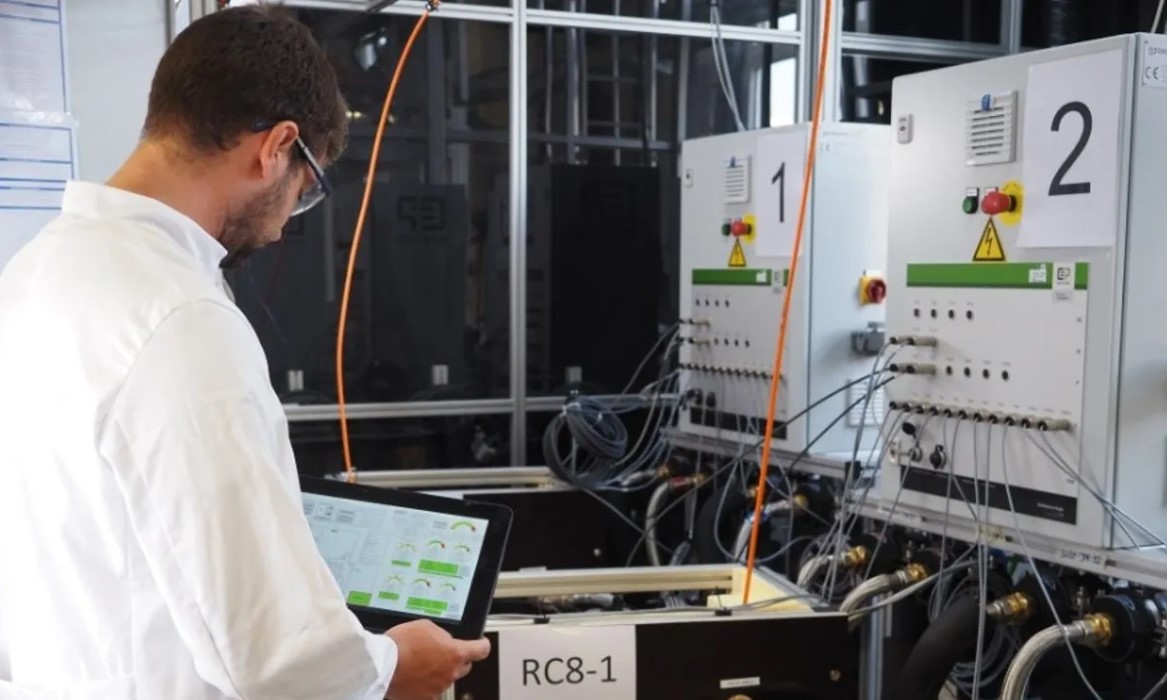German research institute looks into low-charge R290 heat pumps systems, especially Indoors, for multi-family housing
June 06, 2023

The Fraunhofer Institute for Solar Energy Systems (ISE), a German research center, is working to develop low-charge propane (R290) heat pumps in multi-family housing – especially for indoor use – to replace existing gas- and oil-based heating.
Through its Low Charge Heat Pump Solutions (LCR290) project, the research institute aims to develop easy-to-use R290 heat pumps for single-story heating systems, central heating systems installed inside and high-performance systems installed outside. The work is supported by a consortium of manufacturers that represent around 70% of the European heat pump market.
“We need standardized heat pump solutions for the housing industry to replace gas and oil heating systems for all applications,” said Dr. Lena Schnabel, Head of the Department of Heating and Cooling Technologies at Fraunhofer ISE. “Propane has become a recognized refrigerant for the heat pump industry and is now widely used for heat pumps installed outdoors. What we need now are solutions that can be easily implemented indoors as well.”
The project has a budget of €7 million (US$7.5 million) and is funded by the German Federal Ministry of Economic Affairs and Climate Action.
The project is also supported by the heating and housing industries, which Fraunhofer ISE says will allows solutions to be developed in a practical manner and implemented more quickly. In turn, this will accelerate the overall ramp-up to higher unit numbers.
Need for development
If R290 heat pumps are to successfully replace fossil fuel-based heating systems, a range of developments are needed, according to Fraunhofer ISE.
For example, in single-story heating systems and centralized systems in basements, special safety requirements are needed for propane charges greater than 150g (5.3oz). Higher-capacity systems are also needed for centralized basement systems.
For outdoor systems with higher capacities, optimization is focused on charge reduction, improved defrosting and evaluations by standardized safety tests.
The LCR290 project team is looking into concepts for the interconnection and control of several heat pumps. They are also testing safety concepts that can be implemented on larger scale.
Overall, the project aims to enable larger capacities with the same footprint and safety levels. In doing so, Fraunhofer ISE has said that it hopes to facilitate the installation of these systems in urban areas.
Lessons learned
The LCR290 project builds on Fraunhofer ISE’s earlier LC150 project, in which the team developed a 12.85kW (3.7TR) heat pump with 124g (4.4oz) of propane. This heat pump is designed for single-family housing. Manufacturers participating in the project included Viessmann, Bosch, Vaillant Group and Stiebel Eltron.
The project demonstrated that it was possible to achieve a propane charge/heating capacity of 9.6g/kW (1.2oz/TR). According to Fraunhofer ISE, commercially available heat pumps typically use about 60g/kW (7.6oz/TR) of propane.
Results from the LC150 project were recently presented by Timo Methler, Research Associate at Fraunhofer ISE, at the 14th IEA Heat Pump Conference in Chicago, May 15–18.
Lessons learned from the LC150 project will also be used to transfer the refrigerant reduction to larger capacities, said the research institute.
Industry engagement
Fraunhofer ISE has chosen a “platform” approach that it says will allow for broadly supported solutions to be achieved at high speed. In addition to industry partners, this also includes an advisory board.
“The LC150 project has shown that working within a platform provides great motivation for suppliers to perform their own services and specific adaptations,” explained project leader Dr. Katharina Morawiez. “Furthermore, the project provides the partners with networking opportunities and enables standardization and market readiness activities – which are often time-consuming and financially expensive – to be bundled.”
The participating companies will have access to all project and measurement results during the project period, said the institute. They will also benefit from the indirect use of the test facilities and the experience of Fraunhofer ISE in dealing with propane.
Manufacturer partners will be able to incorporate the developed solutions into their own product development or continue to work in cooperative ventures, it added.
According to the research institute, this approach will result in higher production quantities, which in turn offer significant cost reduction potential. It can also open up further synergies and increase the competitiveness of the manufacturers.


